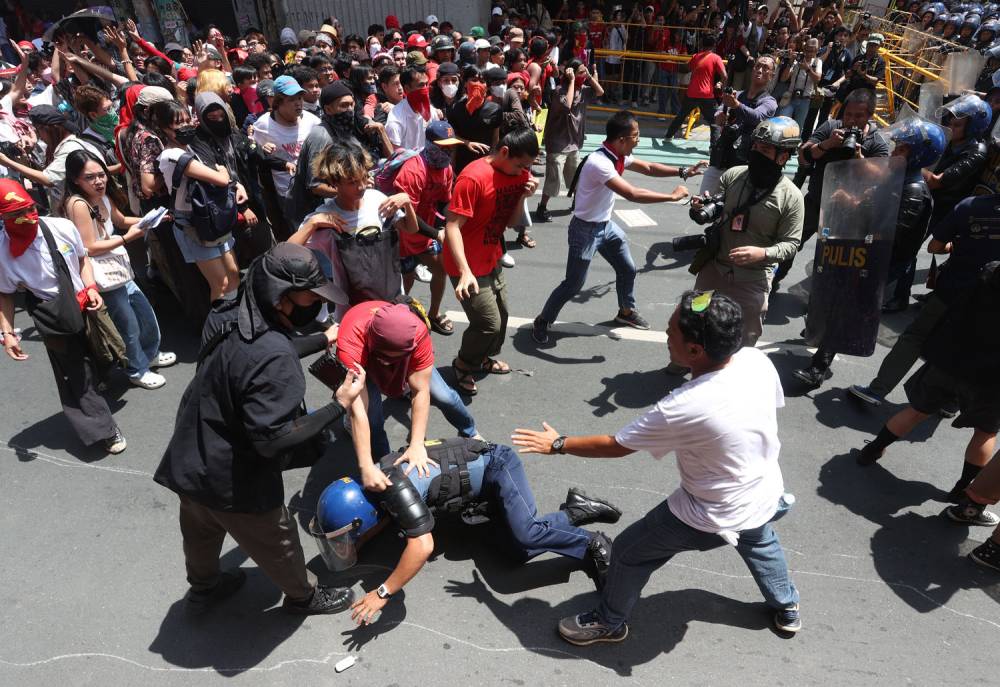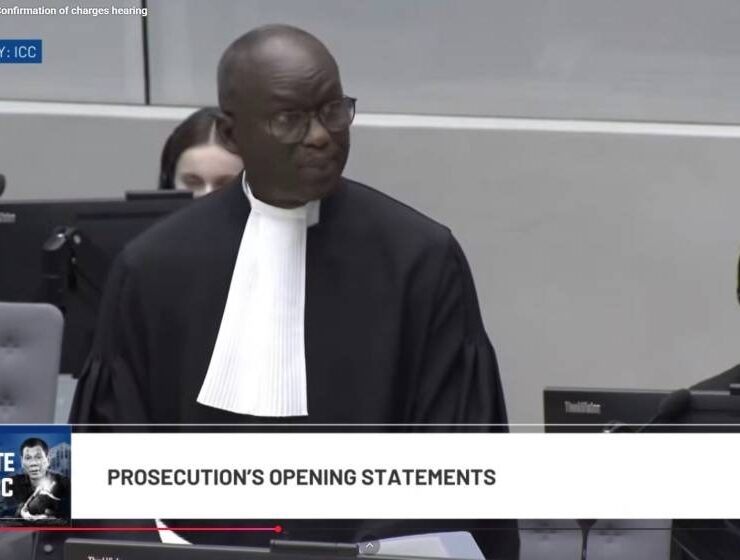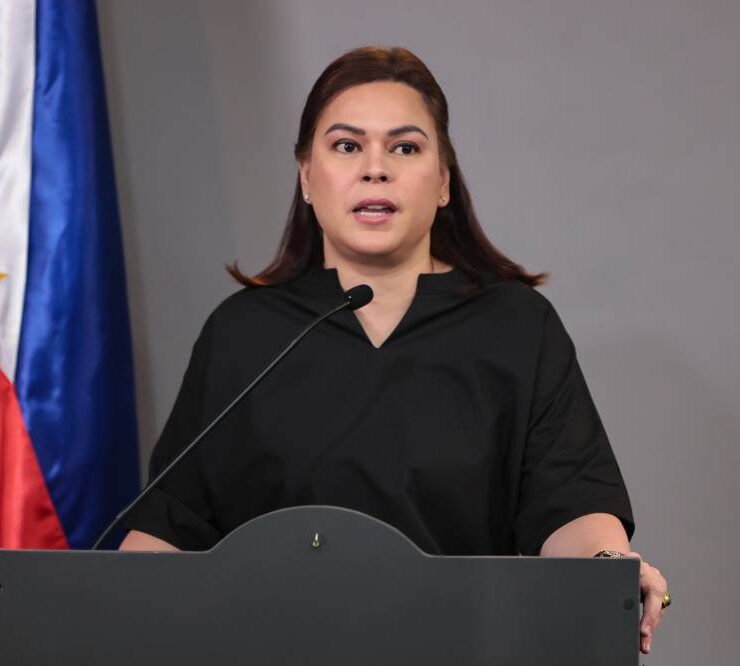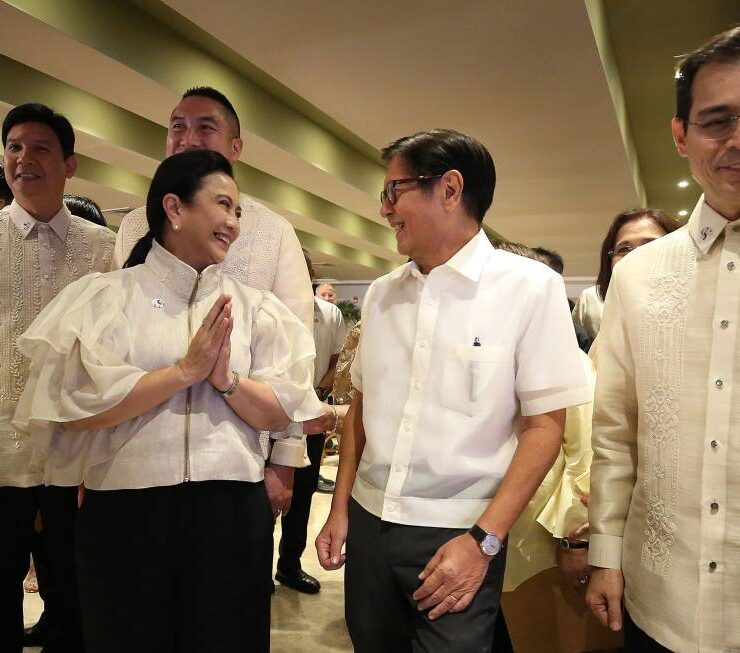On 3rd Labor day of term, Marcos won’t change stand on wage hike

As workers’ groups renewed on Labor Day their call for the urgent certification of a bill pushing for a P200 daily minimum wage hike, President Marcos on Thursday reiterated his position that it was up to the regional wage boards to deliberate and decide on the need for higher pay.
In his Labor Day speech in Pasay City, the President maintained that the government needs to carefully study the implications of wage hike proposals.
Labor groups have been urging the President to certify Congress’ proposed minimum wage hike measures as urgent.
House Bill 11376, which was approved on second reading in February, pushed for a P200 daily wage hike, while Senate Bill 2434 passed in 2024 advocated for a P100 daily wage adjustment.
“It is always nice to listen to sweet promises of higher wages, but these have an effect on the growth of businesses, jobs, and the economy. So we should study this very carefully,” Mr. Marcos noted in his remarks at the 123rd Labor Day celebration organized by the Department of Labor and Employment at the SMX Convention Center in Pasay City.
Firm stance
A legislated wage hike has not been a priority directive of President Marcos in his Labor Day messages since he assumed office.
In his 2023 Labor Day speech, Mr. Marcos made no mention of a wage hike and instead called on the private sector to work alongside the government in promoting good governance and advancing labor reforms.
In his 2024 message, he urged the regional wage boards to review the minimum rates in their respective regions.
Last Jan. 31, the President said the proposed legislated across-the-board wage hike for private sector workers should undergo further study and on April 2, Palace Press Officer Claire Castro announced that the proposal was under review by the wage boards.
However, a day later, Malacañang formally rejected calls for the President to certify the wage hike bill as urgent, reiterating his position that the matter should be handled by the regional wage boards.
Defending his position that wage hikes are best left to wage boards, Mr. Marcos said 16 regions have implemented wage increases since June last year, with 28 wage orders issued so far.
‘Living wage’
The daily minimum wage is highest in Metro Manila at P645, which is far below the P1,200 “living wage”–or the minimum income needed to afford basic necessities like food, shelter, and transportation– being pushed by workers’ groups.
The last legislated wage hike was in 1989 under Republic Act 6727 or the “Wage Rationalization Act that created the RTWPBs and set a P25 daily wage increase.
Aside from labor groups, lawmakers have also called on the President to certify the legislated wage hike bill as an urgent measure, but Mr. Marcos has always remained firm that an increase in the daily minimum wage of workers need a careful study by the wage boards as to of legal and economic implications, especially on micro, small, and medium enterprises.
Pressed for time
On Thursday, Rizal Rep. Fidel Nograles, who last month urged the President to “take the reins” in raising workers’ pay and not pass on the burden to the regional wage boards, again appealed to the President to certify the P200 daily wage hike bill as urgent, arguing that this is a “critical push to convince lawmakers to pass the bill on third reading.”
“Once Congress resumes in June, we will only have six session days from June 2 to 14. The President’s certification could serve as a clarion call to the House of Representatives to rally to the cause of our workers and pass it in time,” he said.
If the House of Representatives is able to pass the wage hike bill on third reading before the closing of the 19th Congress, both Houses could then proceed on reconciling the differences between their respective versions during the bicameral conference committee.
Dismal record
“As we commemorate Labor Day, I hope that we in government be reminded of the continued plight of workers who find it ever more challenging to make ends meet,” Nograles said in a statement.
Last April, Nograles noted that with rising hunger and increases in public transport fees, the government was “now at the point where we need executive action” by certifying the wage hike bill as urgent.
Nograles lamented that regional wage boards have historically only championed “measly and insufficient” wage hikes that do not address rising living costs.
He added that the “fastest and most effective intervention” for this would be for the House’s proposed P200 across-the-board daily wage hike for private sector workers to be passed into law and only an urgent certification by the President could help its eventual passage. —WITH INQUIRER RESEARCH





















